We’ve finished processing the first recordings of the presentations given at Dyalog’24 in Glasgow. The first four are now available to watch, and you can look forward to five or six new recordings each week until the end of November.
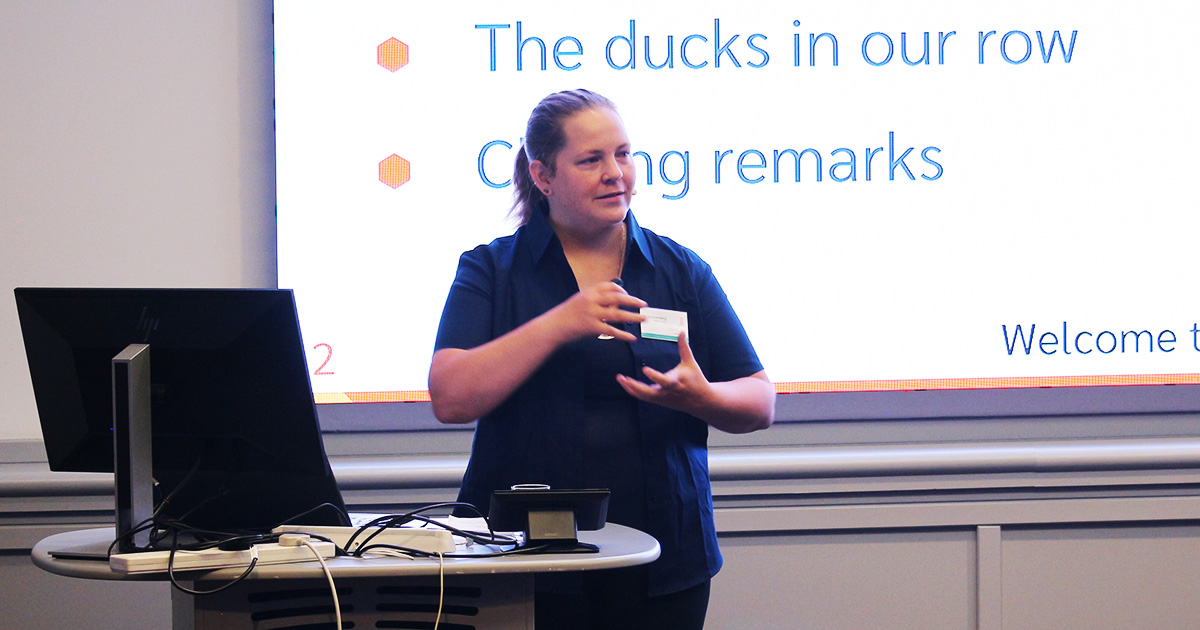 As usual, the Dyalog user meeting opened with presentations by the CEO and CTO, who provided statements of direction for our technical and marketing activities. As mentioned in my blog post introducing the videos after last year’s user meeting, we have a new CEO since 1 January – Stine Kromberg is now at the helm, and opened the meeting. I once again followed up the CEO’s introduction with a whirlwind tour of what I consider to be the most important stops on our technical road map – also introducing many of the talks that will follow later.
As usual, the Dyalog user meeting opened with presentations by the CEO and CTO, who provided statements of direction for our technical and marketing activities. As mentioned in my blog post introducing the videos after last year’s user meeting, we have a new CEO since 1 January – Stine Kromberg is now at the helm, and opened the meeting. I once again followed up the CEO’s introduction with a whirlwind tour of what I consider to be the most important stops on our technical road map – also introducing many of the talks that will follow later.
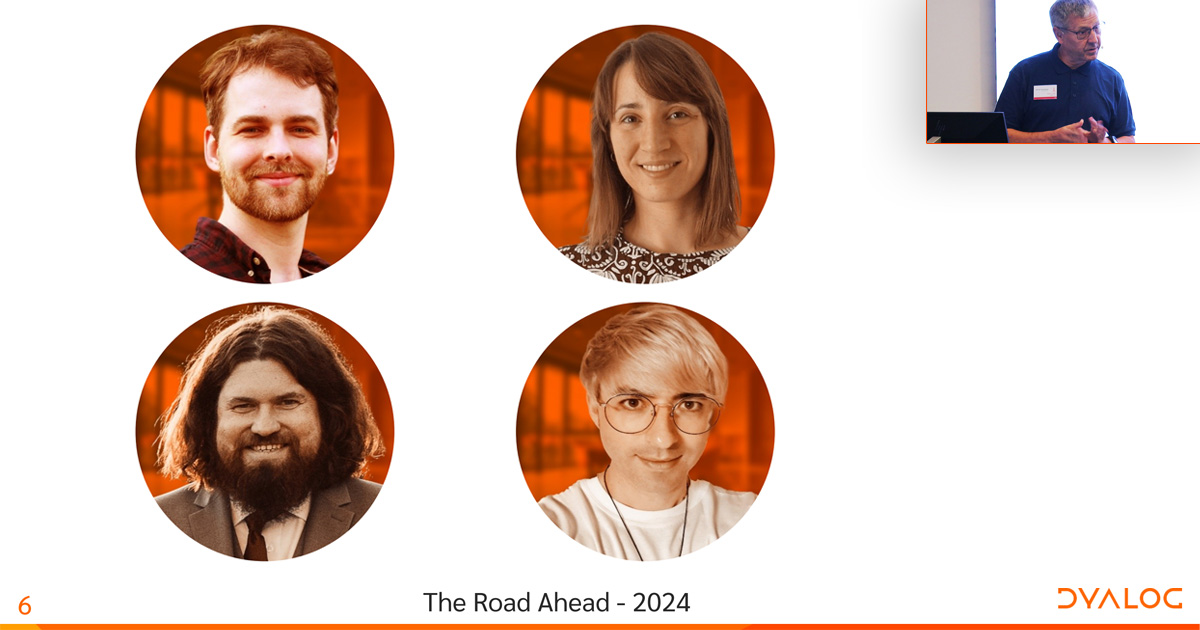
The two other talks we are releasing this week are from the other end of the meeting, appearing first due to technical issues that have delayed a couple of other recordings. First up is Aarush Bhat, who is making his first presentation at a Dyalog user meeting. Aarush is based in Bangalore and has been working for Dyalog for just over a year now. So far, most of his efforts have been concentrated on building a new framework for very thoroughly testing primitive elements of the Dyalog APL language; in this presentation, he explains what he has been able to do so far.
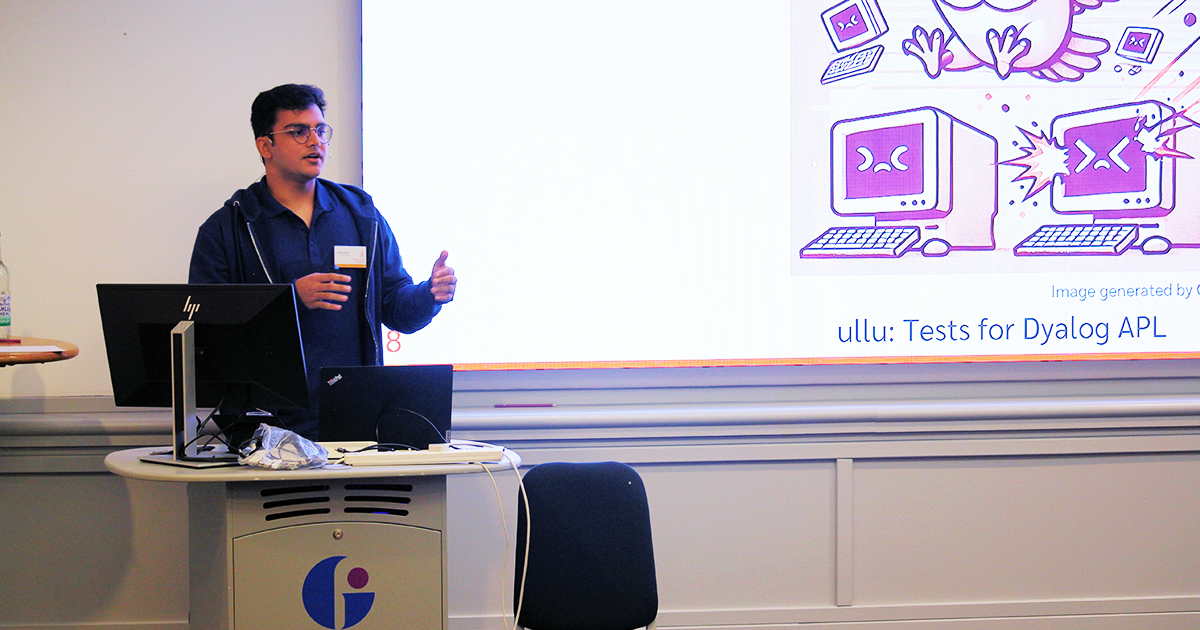
At the other end of the spectrum, we have lost count of how many presentations our Chief Architect John Daintree has made! In the third of his three presentations this year, he talks about limits in the Dyalog APL interpreter. These limits include things like the maximum rank of an array, the number of different data types we can support, the maximum number of constants and names in an expression, and so on. Many of the structures that impose these limits have remained unchanged since Dyalog version 1.0, but some of the limits are now coming under pressure by migrants from APL systems that have different limits, and some of the new features that we are adding to Dyalog, like array notation – and new primitives.
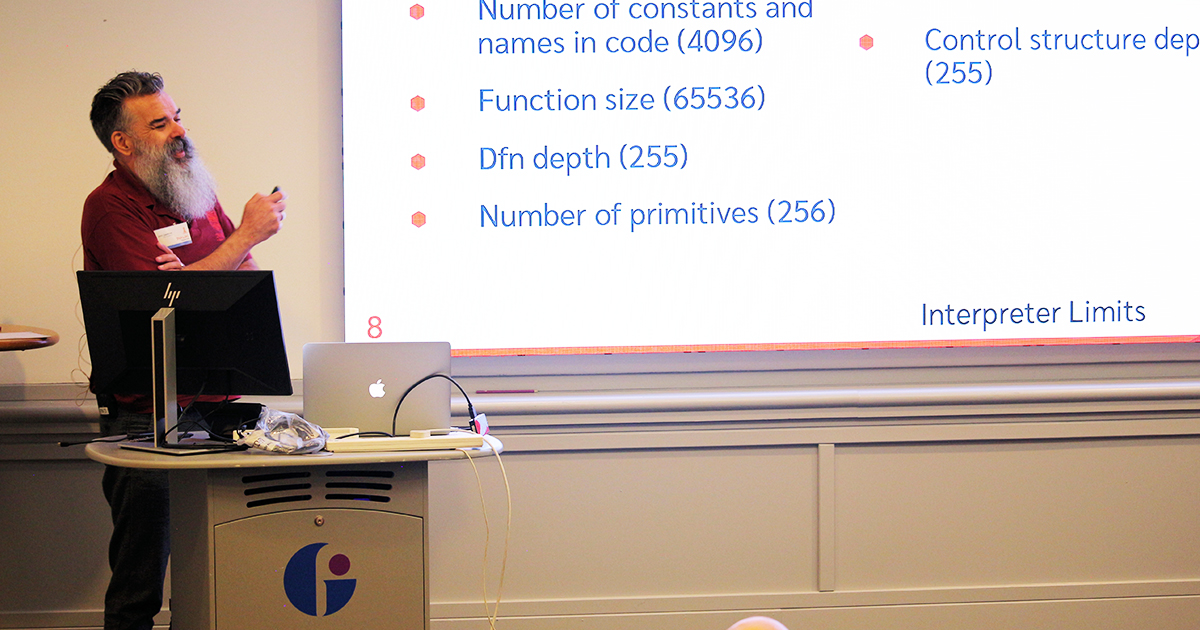
Any change to such structures has potential impacts on performance. Work will need to be done to continue to allow the sharing of arrays between different versions of Dyalog through workspaces, component files, and TCP sockets. If we do make changes, we’d like to get them all over and done with in one go, and ideally not change them again for another 40 years.
I hope you enjoy watching the first set of recordings from Dyalog ’24!
——————————————
This week’s videos:
- D01: Welcome to Dyalog ’24 (Stine Kromberg)
- D02: The Road Ahead (Morten Kromberg)
- D15: ullu – A Test Framework for Dyalog APL (Aarush Bhat)
- D16: Interpreter Limits (John Daintree)
Materials for all presentations can be downloaded from the Dyalog ’24 webpage.


 Follow
Follow When not working, Mike enjoys spending time at a local cinema that specialises in screening older films and titles not typically found in larger venues (the last one being the 1974 film
When not working, Mike enjoys spending time at a local cinema that specialises in screening older films and titles not typically found in larger venues (the last one being the 1974 film 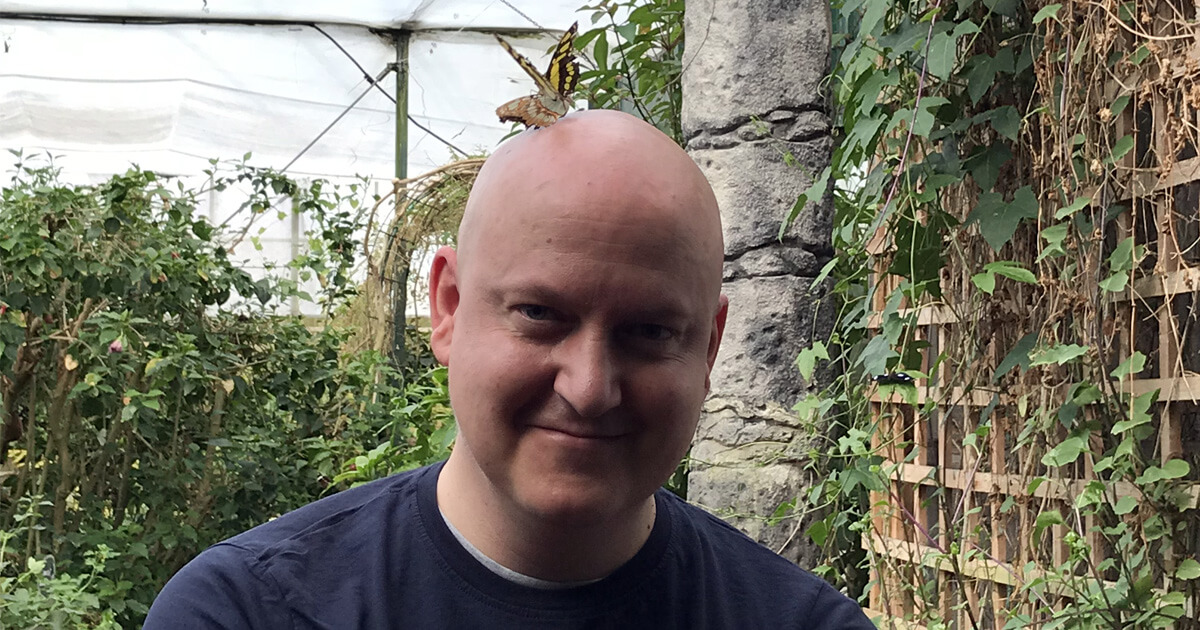
 When not working, Abs likes to play the guitar, travel, and enjoy the company and conversation of his friends. He stays active by playing badminton, and tries to visit the gym a few times a week.
When not working, Abs likes to play the guitar, travel, and enjoy the company and conversation of his friends. He stays active by playing badminton, and tries to visit the gym a few times a week. 

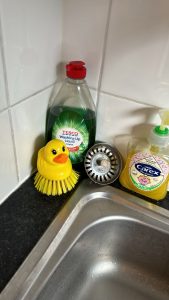 As for Dyalog Ltd’s famous
As for Dyalog Ltd’s famous 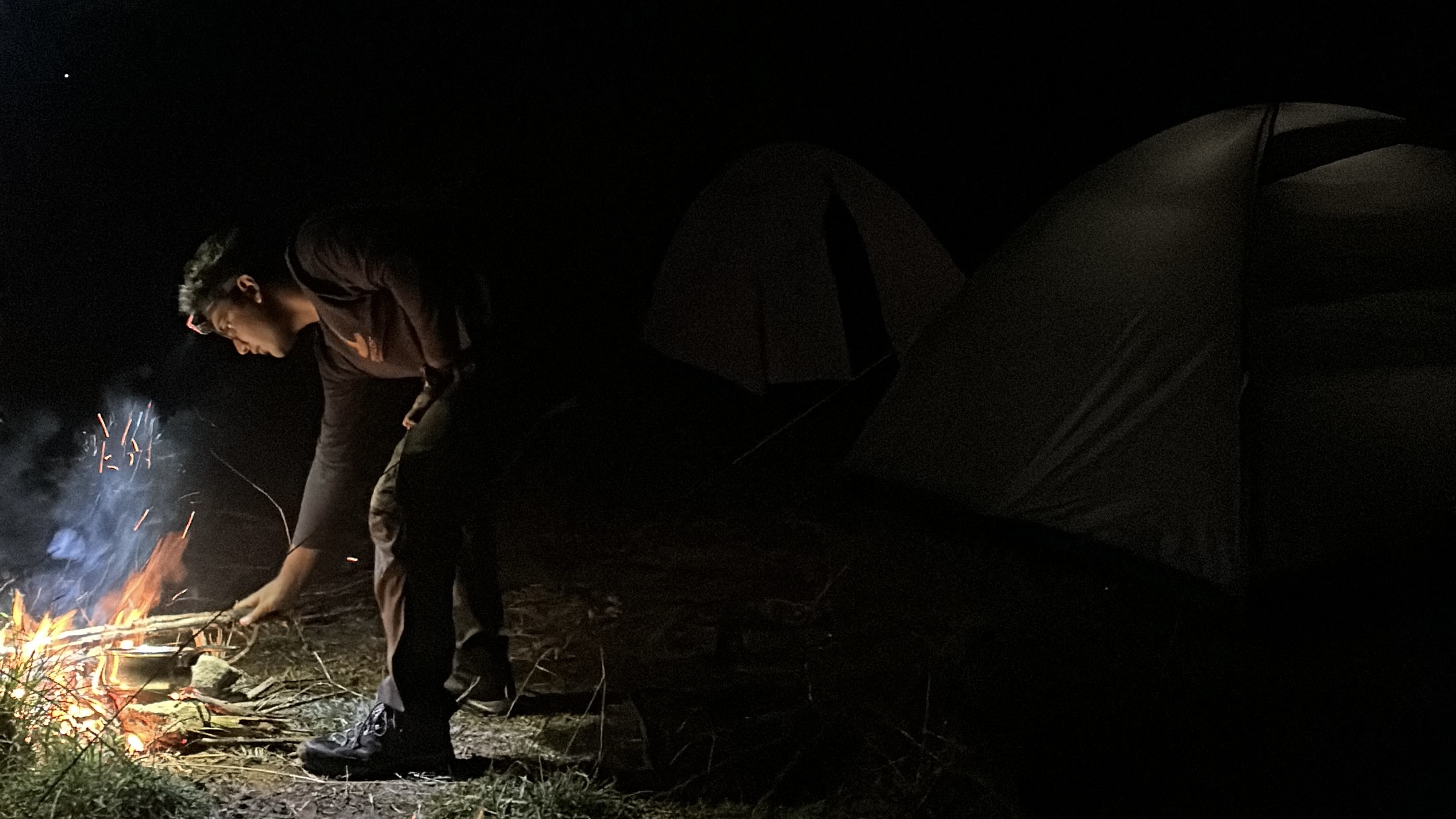
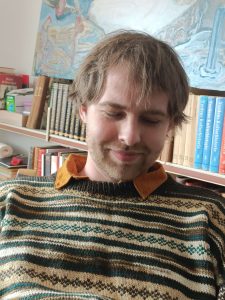 Karl was one of the few computer science students who actually enjoyed the courses on project management; he was also part of an even smaller minority who enjoyed writing mathematical proofs! He not only brings his mathematics and coding abilities with him, but also a fresh energy to the team.
Karl was one of the few computer science students who actually enjoyed the courses on project management; he was also part of an even smaller minority who enjoyed writing mathematical proofs! He not only brings his mathematics and coding abilities with him, but also a fresh energy to the team.